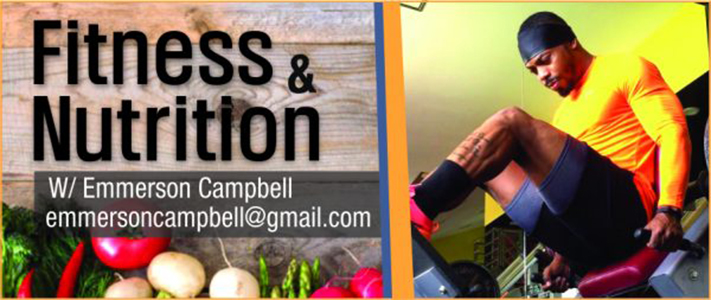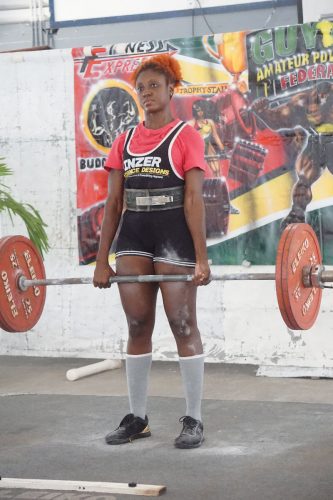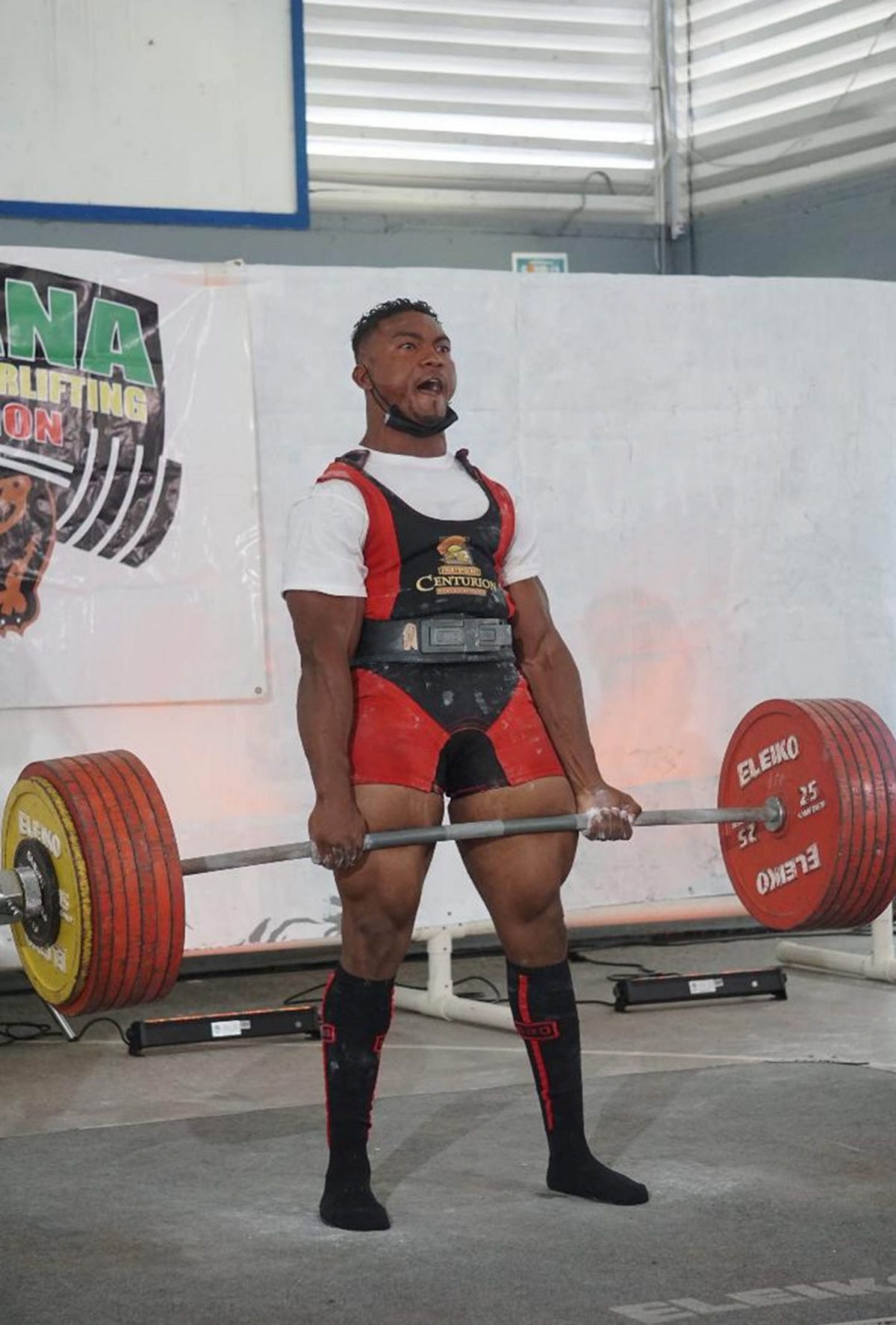
In a powerlifting meet, athletes are tasked with completing three lifts, the squat, bench press and the deadlift for a total which will determine the winner based on their body weight.
Beginning this week I will present a series on the three exercises and their benefits, starting with the deadlift.

Keisha Abrigo performing the deadlift
The Deadlift
In my opinion, the deadlift is the quintessential weightlifting exercise. In my experience as an athlete and as a personal trainer based on the results witnessed by many of my personal training clients, the deadlift, if performed correctly, will build unparalleled mass while strengthening all the major muscle groups.
Yes, many will argue that the squat is the King of Exercises, and will contribute to more strength and size gains than any other exercise. While it is true that the squat does rank as one of the best size builders (and on this basis alone should be included in everyone’s programme), the
deadlift in my opinion, builds the upper and lower body like no other movement.
The deadlift is one of the most effective exercises for also developing strength and power in the lower body, particularly in the muscles of the legs, hips, and back.
Deadlifting involves lifting a weight from the ground to a standing position using a hip hinge movement pattern.
The primary muscles worked during a deadlift are the hamstrings, glutes, spinal erectors, and trapezius muscles. These muscles work together to lift the weight off the ground and maintain proper posture throughout the movement.
In addition to building strength and power, deadlifting also has a number of other benefits for the body.
Deadlifting can improve posture and spinal alignment by strengthening the muscles of the back and core. When performed correctly, deadlifting can also have a positive impact on bone density and joint health. The heavy loading of the weight-bearing joints during exercise can stimulate bone growth and help prevent osteoporosis.
However, it’s important to note that deadlifting can be a very demanding exercise and should only be performed with a proper technique.
Poor form or excessive weight can increase the risk of injury to the lower back, knees, and other joints.
Next week, we will look at the benefits of the bench press.





